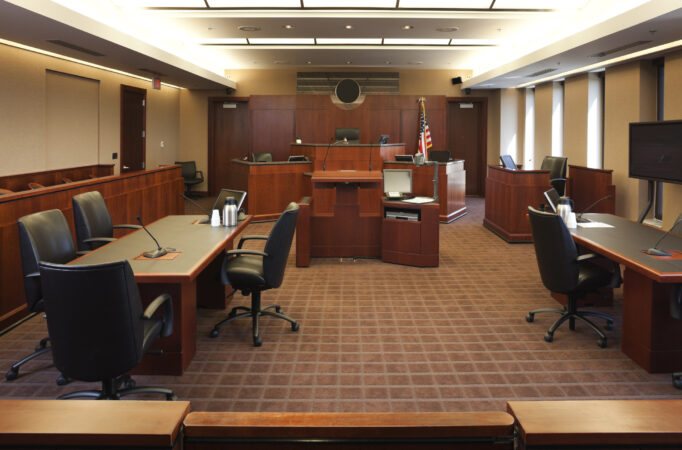Litigation: Latest Legal Blogs and News
What Do I Do With All That "Stuff" My Tenant Left Behind?
It is not uncommon for landlords to find their rental property littered with personal property left behind by former tenants. Since the tenant vacated the premises, that “stuff” should be the landlord’s to do with as she sees fit, right? Not quite.
The Pennsylvania Landlord and Tenant Act includes a section that applies when a tenant is legally evicted, or when the tenant packs up substantially all his personal property, leaves the leased space and provides a forwarding address or written notice to the landlord that the leased space is being vacated.
So, once the landlord takes possession of a leased space that contains the former tenant’s personal property, the landlord must provide a notice requiring the tenant to inform the landlord, within 10 days of the notice, of his intention to retrieve the personal property. If the tenant does not make this notification within the 10 day period, the landlord can dispose of the property.
When a tenant notifies the landlord of his intention to retrieve the personal property, the landlord must safeguard the property for 30 days at a location near the leased space. The landlord can pass on the cost to move and store the property on to the tenant.
IMPORTANT NOTE: If the tenant’s lease does not identify the 10 day notice and 30 day requirement, the landlord must not only provide notice to the tenant, but also to the tenant’s emergency contact. Therefore, it would be wise to review your lease and include language about the 10 day notice and 30 day requirement if not already present.
Now, if the tenant does not make the necessary notification within the 10 day period, or if he does, but does not retrieve the personal property within the 30 day period, the landlord is then free to dispose of the property. If the landlord chooses to sell the property, only the amount that is owed by the tenant can be kept. The remainder of the proceeds from a sale must be sent to the tenant.
The landlord can send out the 10 day notice immediately after the tenant gives the notice of abandonment described above, or at the time a legal eviction is granted. If the eviction order sets forth the 10 day notice by provision and 30 day requirement, the landlord does not have to give any notice.
The Act does not provide a standard or formal notice format, so composure of the notice is left up to the landlord. The notice should state:
- That the tenant has 10 days from the postmark of the notice to inform the landlord of her intention to retrieve the personal property;
- The location from where the property can be retrieved;
- That the tenant will be responsible for the costs of moving and storage of personal property; and
- The landlord’s address, telephone number and email address.
About Us
The litigation attorneys at Houston Harbaugh, P.C., are accomplished business trial lawyers, providing comprehensive support in litigation across a broad spectrum of matters throughout Pennsylvania, West Virginia, Ohio and other jurisdictions upon a special admission basis. Our clients are regional and national small, medium and large companies and individuals who seek well planned and aggressive, but cost effective litigation. We counsel, we budget, we have a deep bench, we act quickly when needed and we have experienced trial lawyers who know the courts and bench. We serve regularly as local counsel for some of the largest law firms in the country when they have matters in this region.

Henry M. Sneath - Practice Chair
Co-Chair of Houston Harbaugh’s Litigation Practice, and Chair of its Intellectual Property Practice, Henry Sneath is a trial attorney, mediator, arbitrator and Federal Court Approved Mediation Neutral and Special Master with 98 trial verdicts and extensive federal and state court trial experience in cases involving commercial disputes, breach of contract litigation, Artificial Intelligence (AI), intellectual property matters, patent, trademark and copyright infringement, trade secret misappropriation, DTSA claims, cyber security and data breach prevention, mitigation and litigation, employment and restrictive covenant litigation, probate trusts and estates litigation, construction claims, eminent domain, professional negligence lawsuits, pharmaceutical, products liability and catastrophic injury litigation, insurance coverage, and insurance bad faith claims. DTSALaw® Business Litigation. Pittsburgh Strong.®

Samuel H. Simon - Practice Chair
As co-chair of Houston Harbaugh’s Litigation Group, Sam focuses his practice on commercial/business litigation. Sam regularly represents clients in the construction, manufacturing, oil and gas, and wholesale/retail/ distribution industries, as well as individuals in matters such as:
- Construction litigation
- Environmental litigation
- Breach of contract disputes
- Oil and gas litigation
- Negligence
- Restrictive covenants (non-compete agreements)
- Civil rights
- Collections/creditors’ rights
- Lease disputes

